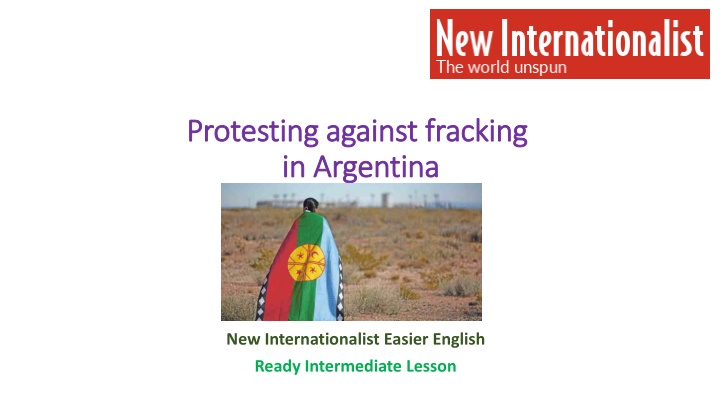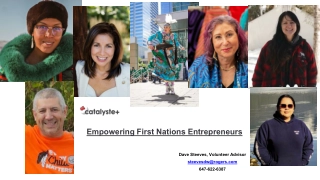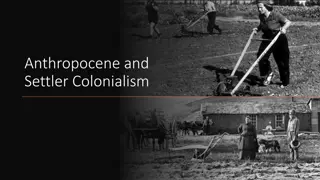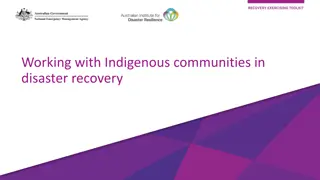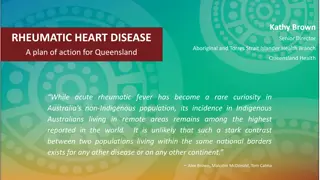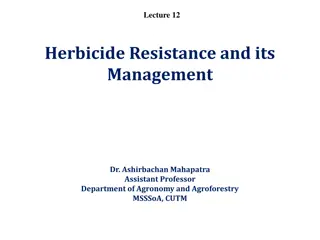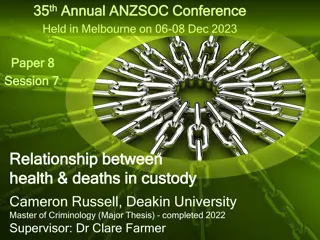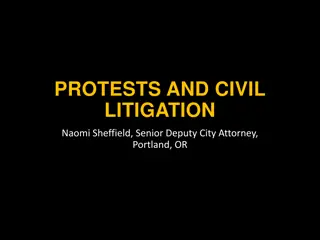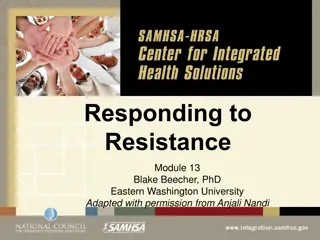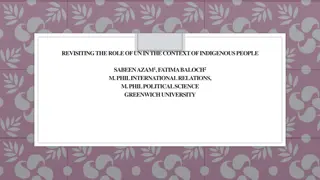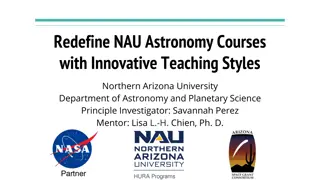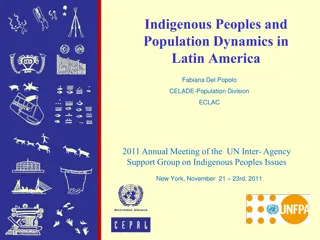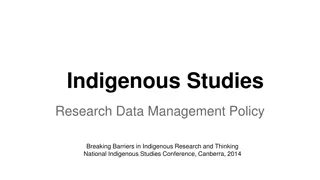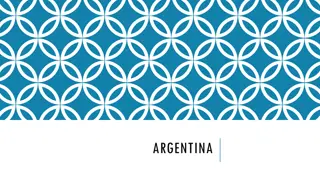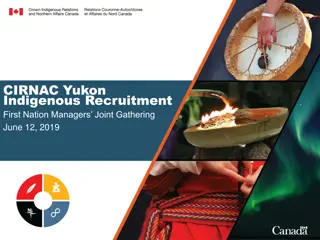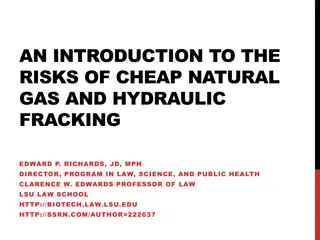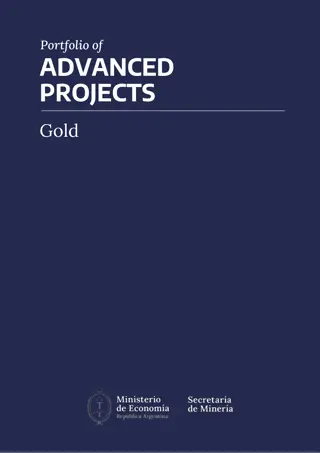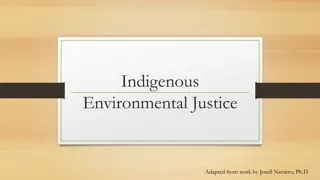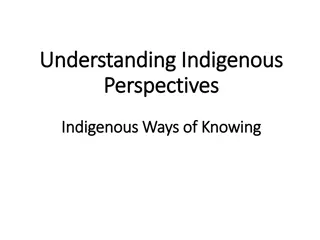Protesting Against Fracking in Argentina: Indigenous Resistance
Indigenous spokesperson Lorena Bravo leads a protest against fracking in Argentina, specifically at the Vaca Muerta region. The Mapuche people stand against the YPF company's fracking activities on their land, highlighting environmental and social impacts. This resource explores the ongoing struggle between indigenous communities and multinational companies in the realm of energy extraction.
Download Presentation

Please find below an Image/Link to download the presentation.
The content on the website is provided AS IS for your information and personal use only. It may not be sold, licensed, or shared on other websites without obtaining consent from the author.If you encounter any issues during the download, it is possible that the publisher has removed the file from their server.
You are allowed to download the files provided on this website for personal or commercial use, subject to the condition that they are used lawfully. All files are the property of their respective owners.
The content on the website is provided AS IS for your information and personal use only. It may not be sold, licensed, or shared on other websites without obtaining consent from the author.
E N D
Presentation Transcript
Protesting against fracking Protesting against fracking in Argentina in Argentina New Internationalist Easier English Ready Intermediate Lesson
Match: Match: 1) fracking 2) indigenous 3) shale 4) contaminate 5) livestock 6) landfill 7) vegetation 8) bleat 9) subsidy 10) renewable energy 11) human chain 12) flag a) describes people who originally lived in a place b) when sheep or goats make a sound c) plants d) drilling into the earth with water, sand, and chemicals to release the gas inside e) type of soft, grey rock f) g) place where waste or rubbish is buried h) money given to help pay the cost of something i) make poisonous j) made from sun, wind, or sea k) l) animals kept on a farm
What do you think? Who is she? Where is she? Why? What is she wearing?
Indigenous spokesperson, Lorena Bravo, in a Mapuche flag, looks towards a gas plant at Campo Maripe, in Argentina.
Predict the answers with a partner and Predict the answers with a partner and then read the text to check: then read the text to check: 1) A large group of Mapuche people protested at a fracking site in Argentina. True/false? 2) There was an agreement between the Mapuche people and the YPF company to start fracking on their land. True/false? 3) There are many gas and oil companies working in the area. True/false? 4) Vaca Muerta has the most shale gas in the world. True/false? 5) Which of these effects of fracking do the Mapuche people notice? (a) changes in the weather (b) water they cannot drink (c) earthquakes (d) people dying (e) animals dying
In the early hours of a Monday in February 2022, 50 Mapuche women, men, and children of the Fvta Xayem community came together. Some were on horses, others were on foot. They came to block the entrances to a fracking site in Vaca Muerta, western Argentina. They stood together by the gates of the Loma Campana fracking installations, and they held up the red, green, and blue flag of the indigenous Mapuche people. The YPF oil and gas company was fracking on their land without any discussion or their agreement. The Mapuche people came to say they would stop the fracking. The Argentine state-owned YPF and the US multinational Chevron work together at the Loma Campana installations. It is the leading fracking site in Vaca Muerta, close to the town of A elo, now the centre of the fracking industry here. Many other companies have fracking operations nearby. Multinational companies including Shell, ExxonMobil, and BP subsidiary Pan American Energy are all working there. Vaca Muerta is home to 34 Mapuche communities; it also has the world s second- biggest shale gas reserves. Community members say fracking is destroying their land, contaminating water supplies, killing livestock, and causing earthquakes.
Put the words in the correct place in the text: Put the words in the correct place in the text: (a) pipelines (b)contaminated (c)stomach pains (d) oil landfills (e) fracking (f)water (g) vegetation (h) dead (i) gas wells (j) shale gas
(1) __________ began in Vaca Muerta in 2013, and when I first visited in 2016, these lands of northern Patagonia were already full of (2) __________. But things have moved very quickly in the last six years: there are now more than 2,451 wells. There are also more (3)_________, roads, waste dumps, sand mines, and (4) __________. Fracking uses a lot of (5) __________. They put 90 million litres of water, with chemicals and sand, into each well to release the (6) __________ and oil in the layers of rock under the ground. Our animals are really suffering, says Jorge Nawel from the Neuqu n Mapuche Federation. There is very little (7) __________ to eat, the land is drying out because the industry has taken all the water. About a quarter of the water returns to the surface, (8)__________ with heavy metals such as mercury, chromium, lead, cadmium, and arsenic. They put the wastewater into old fracking wells, says Nawel. The animals drink this contaminated water. Then we find them (9) __________. We also have animals born with deformities such as an extra hoof, an animal's foot. People from the town of Allen, in the province of Rio Negro, in the southeast, have made a legal complaint. They are saying that people living near one drilling site have asthma, (10) __________ stomach pains, and are vomiting.
Imagine you are a member of a Mapuche community. You have a house, land, children, goats, sheep, and fresh water nearby. One day there are earthquakes during the night and the daytime. How do you think the earthquakes will affect your land, house, family, animals, and the fresh water. Talk to a partner and write a list. Then read the text and compare.
Two communities in Neuqun province, in the northwest of Vaca Muerta, have made legal complaints about the earthquakes with the help of Eduardo Romero, the chief of the Wirkaleo Mapuche community. He told me, There are earthquakes day and night when the fracking work is going on. The houses shake, the land moves, the children start crying, the animals start bleating and running about. It is causing great anxiety, we never felt anything like this before. Andres Dur n is a fruit farmer. He also raises goats, sheep, chickens, turkeys, and geese. He had to leave his home in Sauzal Bonito, by the river Neuqu n, because earthquakes made big cracks in the walls and the floor. His community s freshwater is also contaminated. Twenty of my animals died. Some of my neighbours lost everything. Before we had clear water here, but now we have to buy it in plastic tubs. The situation is very bad, but no one is listening.
There are three paragraphs in the next part of the text. Match the titles to the paragraphs: a) The government really needs money. b) Developing countries don t have enough money to pay for wind, sea, and sun energy. c) The government supported oil companies with money.
1) In 2021, the Argentine government gave new subsidies, $1bn a year for four years, to oil companies working in the Vaca Muerta gas field. And in 2019, the Overseas Private Investment Corporation, a US agency, gave $450m for fracking here. Citi, Credit Suisse, and Morgan Stanley have also subsidized projects in Vaca Muerta, and BlackRock, BNP Paribas, and Goldman Sachs hold shares in YPF. 2) The Argentinian government is in serious debt and so it has promoted fracking and said producing gas will reduce the need to spend on imports. But environmentalists say the Argentinian government has given billions of dollars, such as tax breaks and guaranteed prices, to the fossil fuel industry. Both the state and consumers have paid the bill. 3) For countries in the Global South, it is expensive to change to renewable energy, says Santiago Can , a lawyer for FARN. Big multinational companies should help to pay for the change to clean energy. They should not take subsidies to invest in fossil fuels.
What do you think happened after the week of protest? What ways do you think the Mapuche people protested in the years before? Now read and check.
After a week of blocking the gates to Loma Campana, the Mapuche protesters won an important victory the Argentine government and YPF said they would call a meeting of all locally affected groups to make an agreement before more fracking. This is after years of direct action by indigenous communities in Vaca Muerta. They have climbed oil towers, chained themselves to machinery, and formed human chains around fracking wells.
Homework Homework Write an email to a friend telling them about the fracking and the Mapuche peoples protest and what you think about it.
